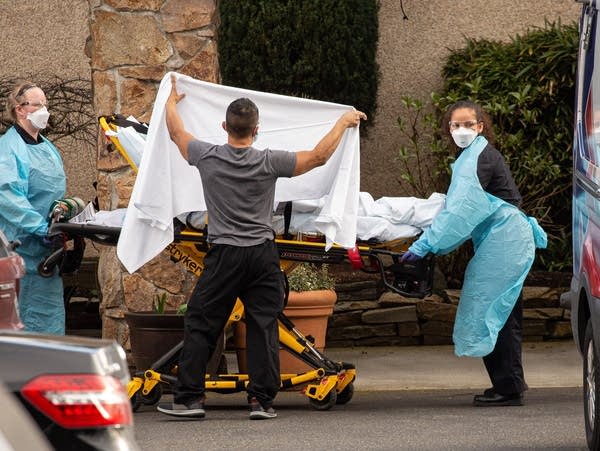COVID-19 danger: People with compromised immune systems are at risk

Go Deeper.
Create an account or log in to save stories.
Like this?
Thanks for liking this story! We have added it to a list of your favorite stories.
Susan Sink sees the coronavirus as a very real threat to her life. "I'm 55 years old and I have stage 4 ovarian cancer. I've had it for four years. And right now I'm in a course of chemotherapy that is once a month," she said.
Sink, who lives in St. Joseph, Minn., has been watching closely for updates on COVID-19, limiting her trips in public, and has just decided to try to self-quarantine.
“Luckily, I live on a farm, so it's easy for me to both work at home — I'm an online editor and writer — and also be outside but not be around a lot of people,” Sink said.
While the coronavirus presents a threat to everyone, the Centers for Disease Control and Prevention says those with weakened immune systems and older adults are at risk of becoming very sick from the virus.
Turn Up Your Support
MPR News helps you turn down the noise and build shared understanding. Turn up your support for this public resource and keep trusted journalism accessible to all.
The state now has nine confirmed cases of COVID-19.
Dr. Mark R. Schleiss, pediatrics professor at the University of Minnesota Medical School, specializes in infectious diseases and immunology. He said knowing who exactly is at risk is not as defined as some may think.
"In terms of people who have identified immune deficiencies, there would be every reason to expect that they would have severe disease and be more likely to have bad outcomes, but there just hasn't been a lot of information yet specifically delineating that group,” he said.
He tells patients to avoid public spaces, wash hands, not touch their face and avoid large groups.
"I try not to get too worried about it, but it is kind of worrisome because I know I am immune suppressed,” said Laura Spilman of Wadena, Minn., who has asthma and rheumatoid arthritis.
"I live in a small town. People think that we’re so isolated out here, but we really aren’t when we have all these people coming in and out from their own vacations and stuff. People should be thinking about what they can do to not spread any of this stuff — even with just the seasonal flu," she said.
Susan Sink is thinking about her next round of chemotherapy, which she gets at a clinic that is often crowded with others who are obviously sick. When she sees social media posts on airline deals to other countries, or dismissing COVID-19 as being like the flu, she worries others are not taking the situation seriously enough.
"You're not alone, and every time you go someplace you are exposing people,” Sink said. “That's only become clear in the last few days, but, I live in a community. And other people in the community are responsible as well for mitigating transmission."
The Minnesota Department of Health's Kris Ehresmann said people need to stay home when sick to protect others who can’t fight off the worst effects of COVID-19, and other illnesses.
Ehresmann added that there are state-confirmed cases of healthy people in their 30s, who have had severe symptoms.


